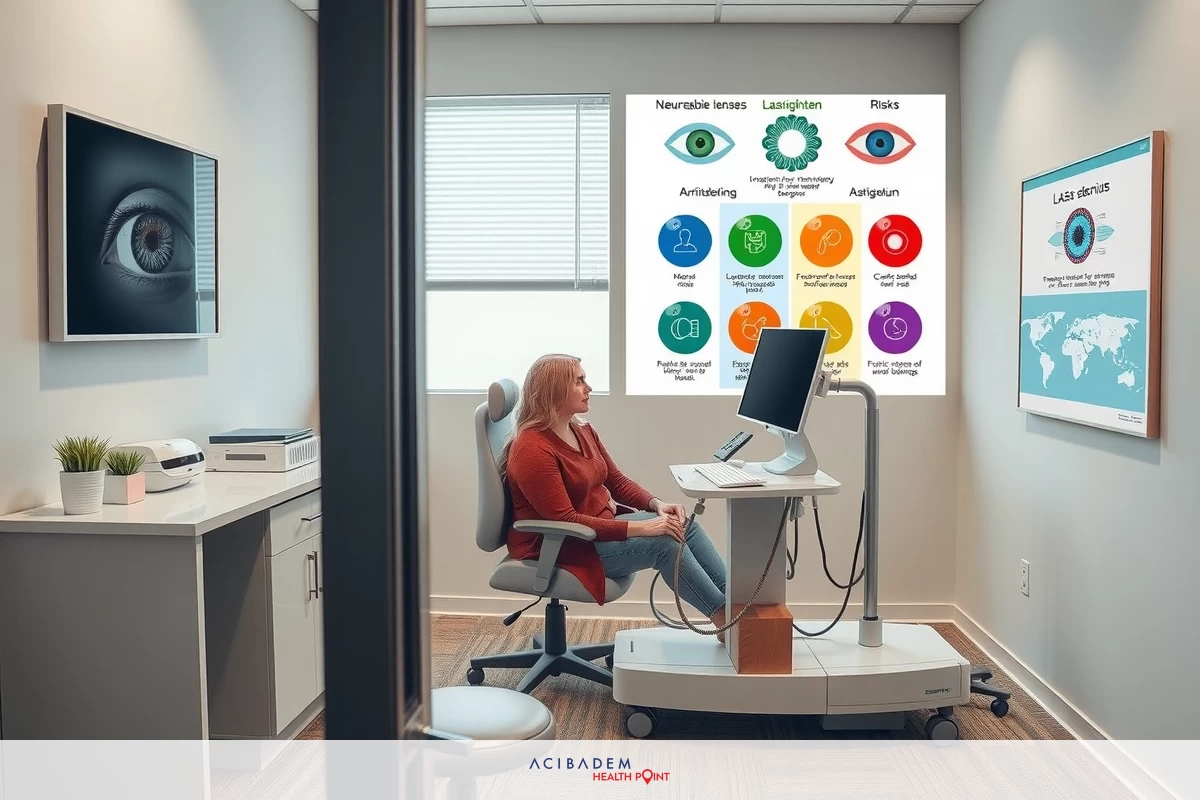How Bad Should Your Eyes Be for LASIK
How Bad Should Your Eyes Be for LASIK LASIK, an acronym for Laser-Assisted in Situ Keratomileusis, paves the way to corrected vision for many people worldwide. But is everyone with poor eyesight a suitable candidate? That’s the query we aim to answer.
Mild to moderate issues like nearsightedness, farsightedness and astigmatism typically find their remedy through this type of surgery. For those grappling with such conditions, LASIK often comes as a boon removing reliance on corrective lenses or constant updating of prescription glasses.
Yet when vision problems intensify towards severity, the path towards solutions becomes less straightforward. Implantable lenses or refractive lens exchange may take precedence over LASIK in these scenarios. Consulting an eye care professional becomes crucial here; they guide potential candidates about suitability based on personalized assessments.
How Bad Should Your Eyes Be for LASIK Mild to Moderate Vision Problems
In the realm of vision correction, LASIK surgery has carved out a reputation for being highly effective. Particularly when we talk about mild to moderate vision problems, its impact is significant. Let’s first consider nearsightedness, or myopia as it’s scientifically known – a condition where objects nearby are clear while those at distance become blurry.
It is in such scenarios that LASIK can work wonders by reshaping the cornea and helping light entering the eye to be properly focused onto the retina. Similarly, for individuals suffering from farsightedness
(hyperopia) where distant objects are clearer than those close up, LASIK provides an efficient solution. The procedure modifies the shape of your cornea so that light focuses more directly on your retina rather than behind it.

Astigmatism presents another common vision problem corrected through LASIK surgery. This condition distorts or blurs vision at all distances due to an irregularly shaped cornea or lens inside the eye which prevents light from focusing properly on the retina. By smoothing out these irregularities with precision lasers during a LASIK operation, one attains improved vision quality.
For prospective patients assessing their candidacy for this procedure based on severity of their visual impairment, understanding these factors plays a pivotal role in decision-making processes related to suitability of undergoing such surgeries. It brings clarity about how effectively they can expect their specific issues resolved through this surgical intervention.
Severe Vision Problems
When we venture into the territory of severe vision problems, the suitability of LASIK surgery comes under scrutiny. Extreme refractive errors might not see optimal correction through this procedure and it may even lead to complications post-surgery. The operating doctor must evaluate such cases meticulously before recommending LASIK.
One alternative that often finds mention is implantable lenses, or Phakic intraocular lenses (IOLs). They function much like contact lenses but are placed inside your eye permanently. Suitable for patients with high degrees of nearsightedness, IOLs help correct vision without removing natural lens tissue – something that differentiates them from LASIK.
Refractive lens exchange (RLE) forms another option for those facing severe myopia or hyperopia along with presbyopia or cataracts. During RLE, your eye’s natural focusing mechanism gets replaced by an artificial one capable of correcting a wider range of visual impairments than most other surgical techniques including LASIK.
The decision between these alternatives and LASIK becomes crucial when dealing with severe vision issues. An experienced eye care professional can navigate you through these intricacies based on their assessment about which technique would provide you the best outcome in terms of improved sight and quality-of-life enhancement.
Consultation with an Eye Care Professional
Taking the first step towards vision correction involves scheduling a consultation with an eye care professional. This initial meeting forms the foundation of your LASIK journey, helping determine if you qualify as a good candidate for this procedure. The process is comprehensive and takes into account multiple factors including medical history, lifestyle needs, and specific vision problems.
Eye health evaluation remains at the forefront of these consultations. Your doctor will meticulously examine your eyes to detect any conditions that might interfere with surgery or its outcomes – be it dry eyes, thin corneas or other eye diseases. They also assess severity of your visual impairment through detailed tests which can influence whether LASIK is right for you.
In addition to conducting these evaluations, another key role of the eye care professional during consultation lies in providing personalized recommendations based on their findings. If they ascertain that LASIK fits well within your scope of requirements and safety parameters, they’ll guide you along those lines; alternatively, they might suggest different procedures better suited to addressing severe visual problems like implantable lenses or refractive lens exchange.
This consultative phase thus ensures each candidate receives tailored advice best suited to their individual circumstances while weighing up possibilities for achieving optimal vision correction results post-surgery.
Frequently Asked Questions
What exactly does LASIK surgery entail?
LASIK involves using a laser to reshape the cornea, the clear front part of your eye. This improves how light is focused onto the retina at the back of your eye and subsequently enhances vision.
Can everyone with poor eyesight undergo LASIK?
Not necessarily. While it's effective for mild to moderate levels of nearsightedness, farsightedness, and astigmatism, individuals with severe vision problems might require other treatments like implantable lenses or refractive lens exchange.
How do I know if I'm a good candidate for LASIK?
The best way to determine this is by scheduling a consultation with an eye care professional. They'll evaluate your overall eye health, assess severity of your visual impairment and provide personalized advice about suitability for such surgeries.
Are there alternatives available if my eyes are not suitable for LASIK?
Yes - in cases where LASIK isn't recommended due to severe vision issues or other contraindications, alternatives like implantable lenses or refractive lens exchange may be considered after thorough evaluation by an experienced ophthalmologist.








